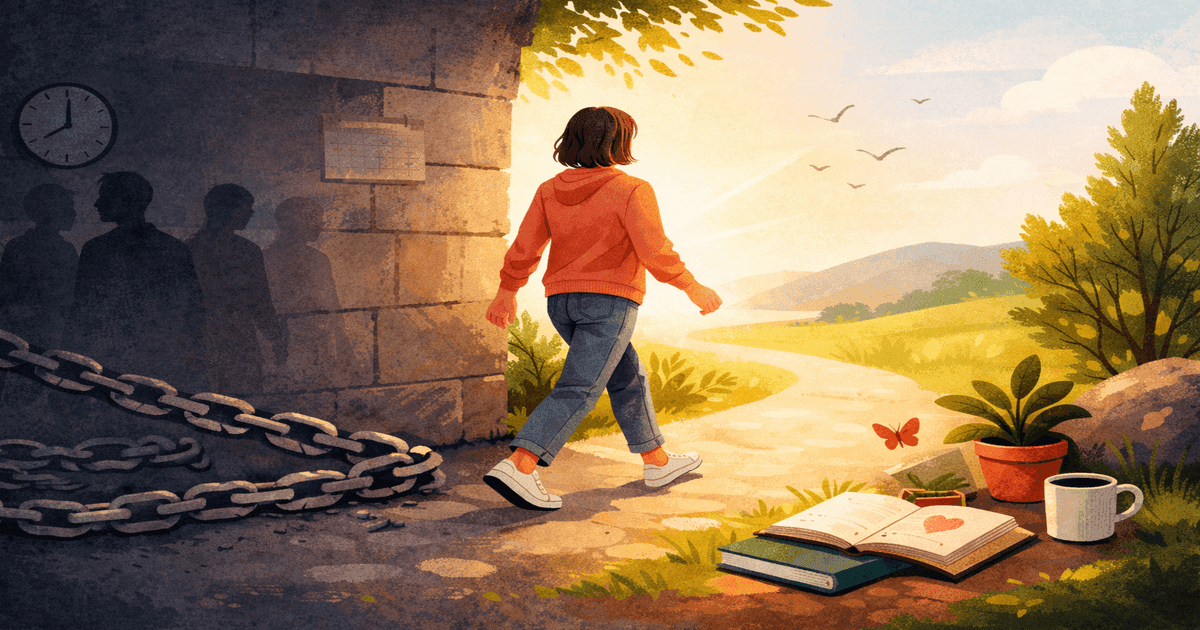Emotional minimalism teaches that peace often begins where excess ends. Many people have been conditioned to chase more, to seek constant achievement and approval, yet the real secret to a calmer, more balanced mind often lies in learning to carry less emotionally. This is not about ignoring feelings or pretending problems don’t exist. It is about being intentional with your energy and letting go of what quietly drains you.
Understanding Emotional Minimalism
Emotional minimalism is the art of simplifying your inner world. It means paying attention to what emotions deserve your energy and which ones do not. Emotional minimalism encourages you to:
- Notice recurring emotional patterns that quietly drain your peace
- Set thoughtful boundaries with people or situations that create unnecessary tension
- Give yourself permission to process emotions in healthy ways rather than burying them
- Protect your mental space so you can truly thrive instead of merely surviving
The benefits of emotional minimalism are far-reaching. It helps reduce anxiety by calming an overstimulated mind, sharpens focus by clearing emotional distractions, and promotes balance by making you more intentional with your responses. It also increases your energy as you release what drains you and allows you to protect your boundaries peacefully without feeling guilty.
This mindset does not encourage emotional suppression but self-awareness. You feel your emotions fully, understand them, then decide which ones are worth keeping and which ones can be released.
Why Emotional Clutter Hurts Mental Health
Research shows that clutter, whether mental or physical, overwhelms the brain and increases stress. When we keep holding on to regrets, grudges, or overthinking moments that have passed, it piles up inside us just like physical clutter. Neuroscientists explain that when too many things compete for our attention, it drains our mental energy and affects our ability to focus.
High levels of clutter have also been linked to increased cortisol, the body’s main stress hormone. When your environment or mind feels chaotic, your brain stays in a constant state of alertness. Over time, this leads to fatigue, irritability, and even symptoms of anxiety.
Emotional clutter works the same way. The more unresolved feelings we store, the less space we have for creativity, joy, and calm. This is unhealthy because your mind needs breathing room to stay healthy.
How to Practice Emotional Minimalism
1. Reflect on what you carry daily
Awareness is the first step to release, so write down the emotions that show up most often. Which of them serve you? Which ones take more than they give? Emotional minimalism helps you reduce mental load, giving your brain more space to focus.
2. Let go of what you cannot change
If an emotion does not help you grow or bring peace, it does not deserve a permanent space in your mind, so let it go. Letting go does not mean ignoring or suppressing your emotions; it means freeing your energy for thoughts, feelings, and actions that genuinely support your well-being. Over time, this practice builds resilience and helps you handle life with a calmer mind.
3. Set gentle boundaries
Protecting your emotional space is essential for mental health. You are not required to respond to every emotional demand or situation around you. Saying no, stepping back, or limiting interactions with sources of tension is not selfish; it is a way to safeguard your peace. Boundaries can be small and flexible at first, like declining an extra task at work or taking a short break from social interactions, but consistent practice strengthens your ability to protect your emotional energy.
4. Create small release activities
Find activities that help you process and discharge emotions such as journaling, deep breathing, evening walks, or creative expression. By giving yourself permission to release feelings in constructive ways, you cultivate a sense of calm and clarity that supports your overall mental health
7. Seek support when needed
Sometimes the load is too heavy to carry alone. Talking to a trusted friend or therapist can help lighten the burden, as verbalizing emotions allows them to flow rather than stagnate, and receiving support reminds you that you are not alone.
Letting go is not always easy because some emotions feel familiar even when they hurt. You may feel guilt or discomfort when you begin setting boundaries or choosing not to overthink, but these feelings are only temporary. The longer you practice emotional minimalism, the lighter you begin to feel.



